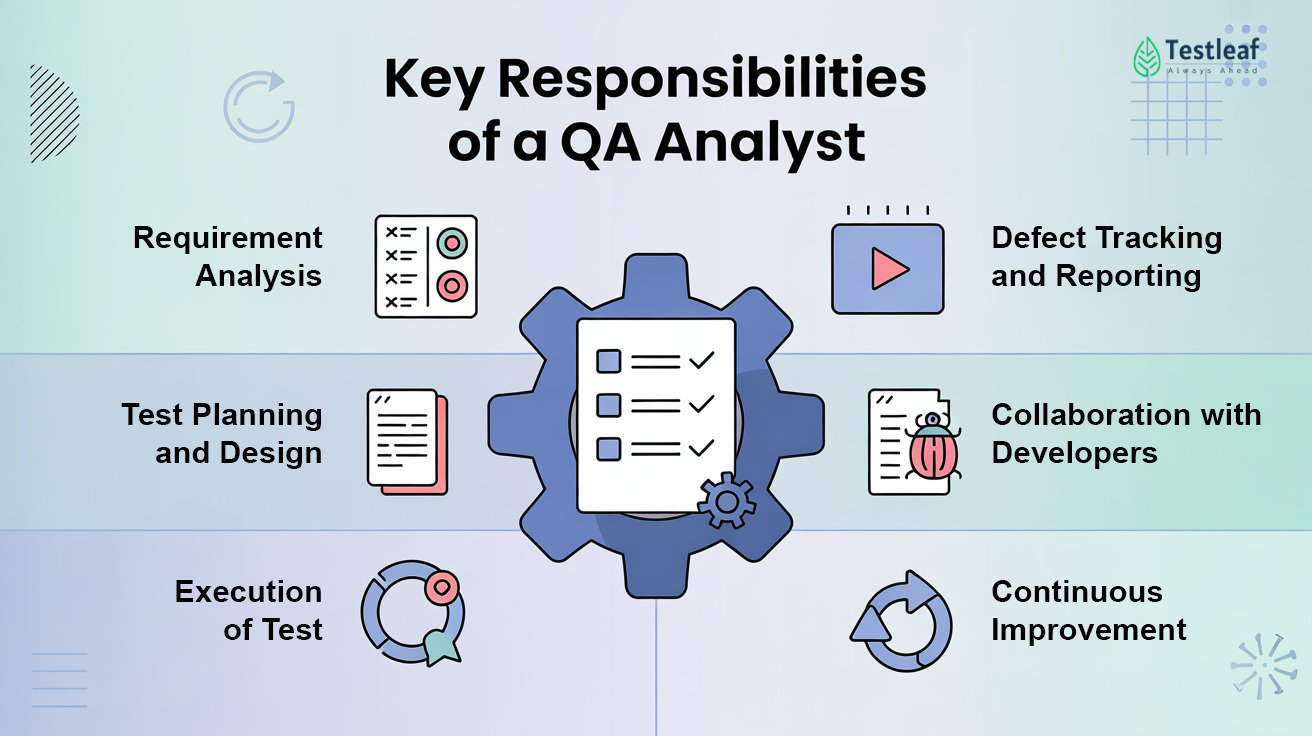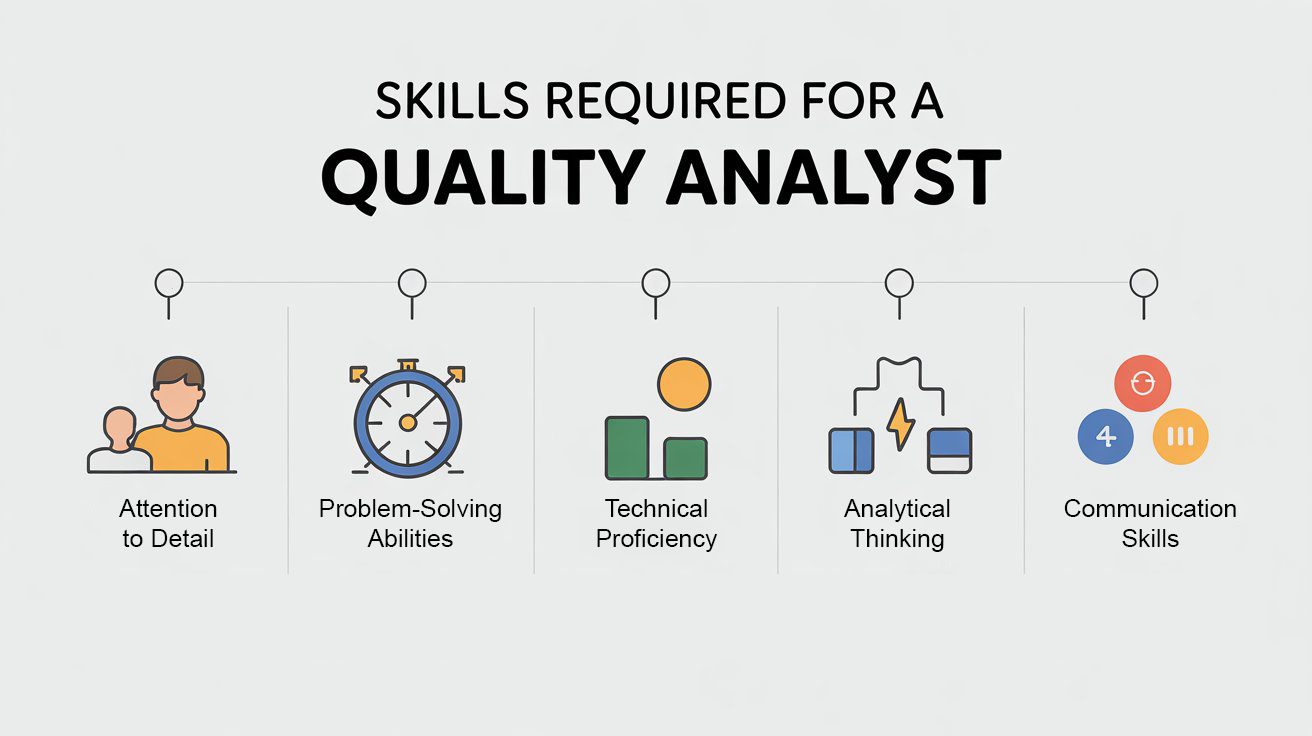In today’s fast-paced world of software development, ensuring the delivery of high-quality products is a priority for every organization. This is where a Software Quality Analyst (QA) plays a vital role.
A QA analyst is responsible for identifying defects in software applications, ensuring that they meet the required standards and perform optimally. This article delves into the duties, skills, responsibilities, and salary expectations of a software quality analyst.
Understanding the Role of a Quality Analyst
A quality analyst ensures that the software development process runs smoothly by testing applications at various stages of their lifecycle. Their primary responsibility is to identify bugs and inconsistencies, ensuring that the final product is error-free, reliable, and meets both user and business requirements. This role is essential in both manual and automated testing processes, where an analyst verifies that all parts of the software work seamlessly together.
The meaning of a quality analyst extends beyond just testing. The role demands a keen understanding of both technical and business requirements, alongside strong communication skills to report issues to developers and other stakeholders. A quality analyst ensures that customers receive software that is dependable, user-friendly, and efficient.
Popular Articles: automation testing interview questions
Key Responsibilities of a QA Analyst

The job of a quality analyst involves a series of tasks, each designed to assess the functionality and usability of software. Here’s an overview of the key duties typically performed by professionals in this role:
- Requirement Analysis: One of the first responsibilities of a quality analyst is to understand the requirements of the software product. By analyzing functional and non-functional requirements, they can design effective test cases that meet user expectations and business objectives.
- Test Planning and Design: QA analysts are involved in planning test strategies, which include both manual and automated testing. This stage involves creating detailed test cases, test scripts, and checking different combinations of inputs to ensure that the software works across various scenarios.
- Execution of Tests: Whether the testing process is manual or automated, QA analysts execute test cases to verify the software’s functionality, performance, and security. They ensure that all the features function as expected, and any issues are logged for resolution.
- Defect Tracking and Reporting: Identifying, logging, and tracking defects is another major responsibility of a quality analyst. When issues arise, they must provide detailed information to developers for a faster resolution. Continuous follow-ups ensure that the software maintains quality throughout its development cycle.
- Collaboration with Developers: QA analysts work closely with software developers, sharing findings from tests and ensuring that problems are resolved. This collaboration ensures the software is refined and ready for deployment. They also offer feedback to improve the development process.
- Continuous Improvement: A key responsibility is recommending process improvements. QA analysts suggest tools, techniques, and strategies to streamline testing efforts, enhance product quality, and make the development cycle more efficient.
Skills Required for a Quality Analyst

To be successful in this role, a quality analyst must possess a mix of technical, analytical, and interpersonal skills. Some of the core competencies include:
- Attention to Detail: QA analysts must identify even the smallest bugs or inconsistencies that could disrupt software functionality.
- Problem-Solving Abilities: They must troubleshoot and determine the causes of software defects, often working with developers to find solutions.
- Technical Proficiency: Familiarity with different testing tools (e.g., Selenium, QTP), coding languages, and test automation is essential in today’s tech environment.
- Analytical Thinking: QA analysts should have a strong ability to assess the performance of the software and identify areas for improvement.
- Communication Skills: Clear communication is crucial when reporting defects and collaborating with other teams. QA analysts must be able to present complex technical issues in a way that non-technical stakeholders can understand.
Job Profile for a Quality Analyst
The job profile for a quality analyst often includes a combination of technical testing and interpersonal collaboration. A typical job description emphasizes the ability to identify problems quickly, document findings clearly, and communicate solutions effectively. A quality analyst should also be familiar with different software development methodologies like Agile or Waterfall, as they significantly impact testing strategies.
They should be comfortable working with both manual and automated testing tools, which help ensure the quality of software from the beginning stages through to deployment. Moreover, their ability to work under tight deadlines and adapt to changing requirements makes them an indispensable part of the development team.
Career Opportunities and Growth
Quality analysts can find job opportunities in almost every sector, as nearly every company that develops software requires testing. From tech startups to large corporations, the demand for skilled QA professionals is consistently high. With the rise of automation tools, there’s also an increasing need for specialists who can write and manage automated test scripts.
The growth prospects for quality analysts are promising. With experience, they can move into higher positions such as QA Lead, Test Manager, or even roles in product management or project management. Additionally, gaining proficiency in advanced testing tools and acquiring certifications can help a QA analyst advance in their career.
Salary Expectations for Quality Analysts
Salaries for quality analysts vary depending on experience, location, and the size of the company. On average, entry-level quality analysts can expect to earn between $50,000 and $70,000 annually. With several years of experience, this can rise to $80,000 to $100,000. Senior positions, particularly in high-demand industries, can command even higher salaries. Additionally, specialists in automated testing or those with certifications often earn premium pay.
Conclusion
The role of a quality analyst is crucial in ensuring that software applications meet high standards and function as intended. From test planning to defect resolution, quality analysts ensure that customers receive the best product possible. They collaborate closely with developers, offering valuable insights and improvements. As the tech industry continues to grow, so does the demand for skilled QA professionals, making this career path both rewarding and full of potential.
FAQs
-
What is the role of a Software Quality Analyst?
-
A Software Quality Analyst ensures that software is free of defects and meets the required business and technical standards by testing it manually and through automation.
-
-
What skills are required to become a Quality Analyst?
-
Key skills include attention to detail, problem-solving, technical proficiency, analytical thinking, and strong communication skills.
-
-
What are the main responsibilities of a Quality Analyst?
-
Responsibilities include requirement analysis, test planning and design, execution of tests, defect tracking, collaboration with developers, and continuous improvement.
-
-
What are the career growth opportunities for a Quality Analyst?
-
QA analysts can advance to roles like QA Lead, Test Manager, or Product Manager with experience and expertise in automation tools.
-
-
What is the salary range for a Software Quality Analyst?
-
Entry-level salaries range from $50,000 to $70,000 annually, while experienced professionals can earn between $80,000 and $100,000 or more in senior roles.
-
We Also Provide Training In:
- Advanced Selenium Training
- Playwright Training
- Gen AI Training
- AWS Training
- REST API Training
- Full Stack Training
- Appium Training
- DevOps Training
- JMeter Performance Training
Author’s Bio:

Content Writer at Testleaf, specializing in SEO-driven content for test automation, software development, and cybersecurity. I turn complex technical topics into clear, engaging stories that educate, inspire, and drive digital transformation.
Ezhirkadhir Raja
Content Writer – Testleaf






